The main aim of this book is to provide the reader with knowledge and understanding of some of the key concepts, doctrines and principles which make up that corpus of law known as constitutional law. Another aim is to develop a sound academic basis for the study of subjects based on public law, such as political science and international relations.
Principles of Constitutional Law
The main aim of this book is to provide the reader with knowledge and understanding of some of the key concepts, doctrines and principles which make up that corpus of law known as constitutional law. Another aim is to develop a sound academic basis for the study of subjects based on public law, such as political science and international relations.
Sh 1,575.00
Related products
-
A Guide to Criminal Procedure in Uganda
Sh 2,700.00This book has been written primarily for Police Officers, Public Prosecutors and Magistrates who bear the main responsibility for enforcing the law and administration of criminal justice. Police Officers will find the Chapters on Police Investigations, arrest, searches, and charges of special interest. Public Prosecutors should derive ample guidance from the Chapters on conduct of public prosecutions, control of public prosecutions, constitutional rights of accused persons, attendance of witness, conduct of trial before Magistrates’ Courts, and examination of witness. Magistrates should benefit by reading especially chapters on jurisdiction, pleas, bail, conduct of trials, preliminary proceedings, judgment, appeals and sentencing process.
-
Equity and Trusts
Sh 2,800.00The book provides an overview of equitable principles in Uganda and links this with the maxims of equity and the distinction between equitable and legal interests. The book will benefit students offering Equity and Trusts
and Estate Planning in East African universities as well as legal
practitioners, insurance, social security and corporate operators. -
Family Law in Kenya: Marriage, Divorce and Children
Sh 2,600.00Family Law in Kenya in so far as it relates to Marriage, Divorce and Children – the focus of this book has been in an unsatisfactory state and calling for reform for a number of decades. Attempts at legislative reform often floundered as successive male-dominated Parliaments rejected them. They finally became a reality when a new constitutional order was promulgated under the Constitution of Kenya, 2010. The new era made possible the enactment of a new statutory framework for marriage, with its antecedents and consequences, as well as matrimonial property with its ownership and distribution.
-
Intellectual Property Law in East Africa
Sh 3,217.00The past half century in Uganda has witnessed both concern and interest in copyright and neighbouring rights. This is evident in the laws and treaties initiated by both the Uganda Government and the international community, aimed at enabling copyright holders to realize the benefi ts of their intellectual works.
-
THE NEW CONSTITUTIONAL LAW OF KENYA: PRINCIPLES, GOVERNMENT AND HUMAN RIGHTS
Sh 2,400.00On 27 August 2010, a new Constitution for Kenya was promulgated. The Constitution seeks to re-orient the country by establishing a robust dispensation for good democratic governance amenable to the exercise of human rights. This book is tailored to unveil to the reader the fundamental normative and institutional frameworks of Kenya’s new Constitution. Not only does it define key concepts in constitutional law, generally, it also details how government in Kenya has been restructured and re-organised to give effect to the traditional principles that form the basis of constitutional law.
The golden thread that cuts across the various chapters of the book is the emphasis that good constitutions anchor certain tenets that have garnered recognition as hallmarks of democratic dispensation.These hallmarks include the concept of separation of powers; the doctrine of the rule of law; constitutionalism and human rights. These attributes have largely been secured by the 2010 Constitution. Thus, this book is expected to contribute to this new promise by making knowledge on the Constitution accessible through breaking down and contextualising its provisions. It is certain to be useful to law and government students, lawyers, researchers and other persons who seek to understand the new constitutional order. Morris Kiwinda Mbondenyi, LL.D., LL.M. (UNISA), LL.B. (Moi), Senior Lecturer and Head of Department, African Nazarene University. J Osogo Ambani, LL.D. (Cand), LL.M. (UP), LL.B. (UoN), Lecturer, MoiUniversity School of Law. -
International Intellectual Property in an Integrated World Economy (Aspen Casebook)
Sh 60,000.00International Intellectual Property in an Integrated World Economy, Fourth Edition by Frederick M. Abbott, Thomas Cottier, and Francis Gurry, provides a comprehensive treatment of the international intellectual property system across the spectrum of intellectual property rights and interests. It introduces the institutional architecture at the multilateral, regional/plurilateral, bilateral and national levels. For each form of IP, it addresses the technical legal rules and illustrative jurisprudence, as well as economic and social welfare implications. Each of the authors has played a role in the development and implementation of the international rules, and they bring their experience to bear in introducing students to the field.
New to the Fourth Edition:
- The latest developments in bilateral and regional agreements regulating intellectual property, including NAFTA 2.0 (USMCA), CPTPP, and CETA
- Important new judicial decisions, including the U.S. Supreme Court decision adopting international exhaustion of patents and CJEU decisions addressing trademarks, geographical indications, and copyright
- Developments in IP and human rights; IP and competition law; and IP and health
- The WTO panel report in the Australia-Tobacco case
Professors and students will benefit from:
- An approach to the international IP system that situates the rules within the broader context of international law and the public policy objectives that governments, industry, and interest groups are seeking to achieve
- Case law from international dispute settlement bodies, as well as from national and regional courts
- Discussion of patent, trademark, geographical indication, copyright, design, trade secret, and data protection; as well as plant variety protection, protection of genetic resources and traditional knowledge, and the role of open source
- An explanation of the new European Union Unitary Patent system
- Exploration of the increasingly important role of emerging market IP systems
- Materials to help students understand the disputes between the United States and China involving IP, investment, and transfer of technology
- Inclusion of important jurisprudential developments
-
Procedure in the Law of Succession in Kenya
Sh 1,800.00One of the difficulties courts have been having in the past in dealing with the Law of Succession Act, had been with the issue of marriage. The Succession Act and the Marriage Act were to have come into operation simultaneously. This did not occur until almost 50 years later. The Marriage Act was gazetted on the 6 May 2014. Parliament amended and consolidated “the various laws relating to Marriage and Divorce and to connected purposes.”
-
International Human Rights and their Enforcement in Africa
Sh 2,400.00The main objective and purpose of this book therefore is to underscore the challenges besetting the effective enforcement of international human rights law in Africa and the prospects and promises of an effective regional human rights system. The book, a revised and updated version of my earlier book entitled The African System on Human and Peoples’ Rights: Its Promises, Prospects and Pitfalls, captures succinctly the recent developments of the system, since the publication of its predecessor. This is done with the understanding that the African human rights system is gradually progressing, despite the fact that it is not only the least developed but also the least effective as compared with its American and European counterparts.

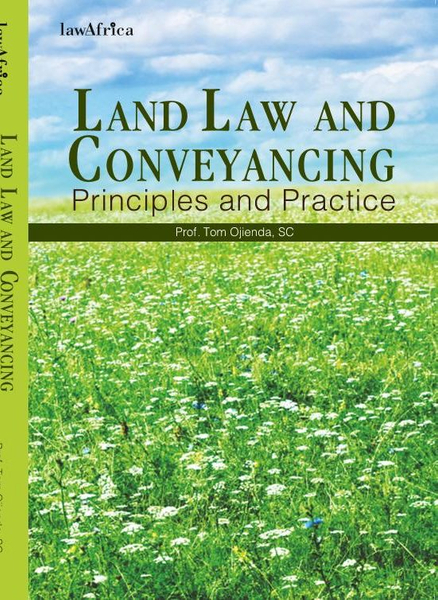


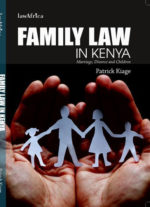
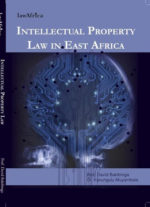

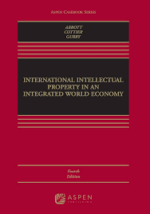
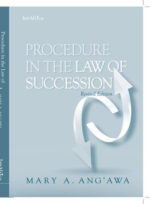
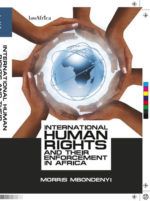
Be the first to review “Principles of Constitutional Law”